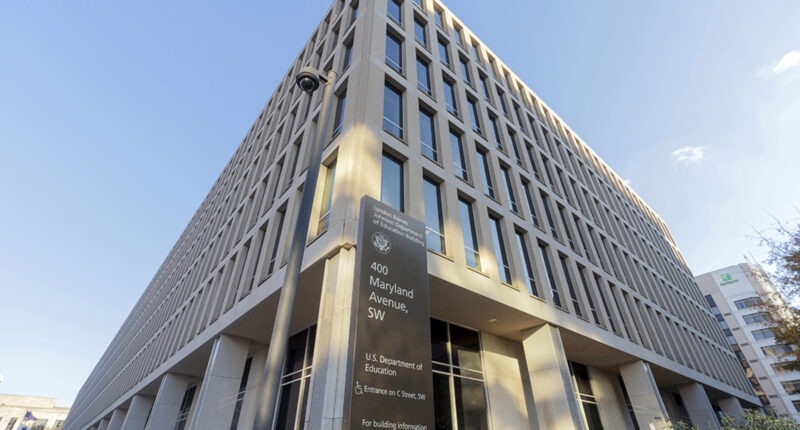WASHINGTON — The Department of Education is set to resume the collection of student loans in default, including the possibility of garnishing wages for potentially millions of borrowers, officials announced on Monday.
Currently, roughly 5.3 million borrowers are in default on their federal student loans.
The decision by the Trump administration signals the end of a leniency period that started during the COVID-19 pandemic. Since March 2020, no federal student loans, even those in default, have been pursued for collection. Despite efforts by President Joe Biden’s administration to forgive the student loans of millions of people, these initiatives were consistently blocked by the courts.
“American taxpayers will no longer be forced to serve as collateral for irresponsible student loan policies,” Education Secretary Linda McMahon said.
Starting from May 5, the Department will utilize the Treasury Department’s offset program for involuntary collection. This program deducts payments owed to the government, such as tax refunds, federal salaries, and other benefits, from individuals with overdue debts to the government. Following a 30-day notification period, the Department will also implement wage garnishment for defaulted borrowers.
The decision to send debt to collections drew criticism from advocates.
“This is cruel, unnecessary and will further fan the flames of economic chaos for working families across this country,” said Mike Pierce, executive director of the Student Borrower Protection Center.
Already, many borrowers have been bracing for obligations coming due.
In 2020, President Donald Trump paused federal student loan payments and interest accrual as a temporary relief measure for student borrowers. The pause in payments was extended multiple times by the Biden administration through 2023, and a final grace period for loan repayments ended in October 2024. That meant tens of millions of Americans had to start making payments again.
Borrowers who don’t make payments for nine months go into default, which is reported on their credit scores and can go to collections.
In addition to the borrowers already in default, around another 4 million are between 91 to 180 days late on their loan payments. Less than 40% of all borrowers are current on their student loans, department officials said.
For borrowers in default, one step to avoid wage garnishment is to get into loan rehabilitation, said Betsy Mayotte, president of The Institute for Student Loan Advisors.
Borrowers need to ask their loan servicer to be placed into a loan rehabilitation program. Typically, servicers ask for proof of income and expenses to calculate a payment amount. Once a borrower has paid on time for nine months in a row, they are taken out of default, Mayotte said. A loan rehabilitation can only be done once.
Biden oversaw the cancellation of student loans for more than 5 million borrowers. Despite the Supreme Court’s rejection of his signature proposal for broad relief, he waived more than $183.6 billion in student loans through expanded forgiveness programs.
In her statement Monday, McMahon said Biden had gone too far.
“Going forward, the Department of Education, in conjunction with the Department of Treasury, will shepherd the student loan program responsibly and according to the law, which means helping borrowers return to repayment – both for the sake of their own financial health and our nation’s economic outlook,” she said.
___
Associated Press writer Adriana Morga in New York contributed to this report.
___
The Associated Press’ education coverage receives financial support from multiple private foundations. AP is solely responsible for all content. Find AP’s standards for working with philanthropies, a list of supporters and funded coverage areas at AP.org.
Copyright © 2025 by The Associated Press. All Rights Reserved.

















